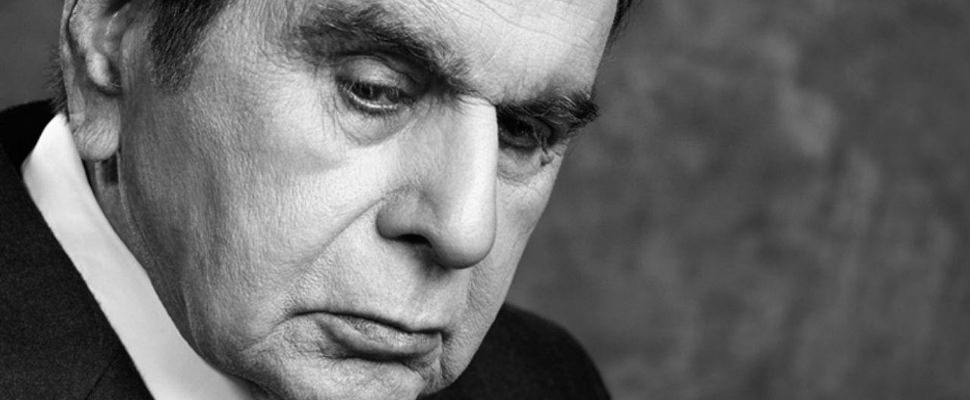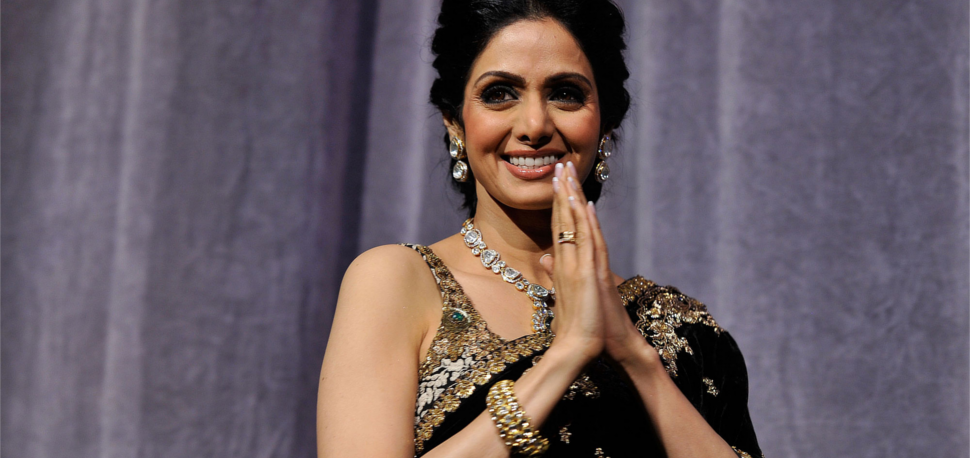Success in the Bollywood industry comes in a variety of ways these days. Actors and filmmakers can rise to fame with the littlest of effort. Disc Jockeys, YouTubers, reality stars and, the most popular, off spring of industry insiders can all get a shot at showcasing their talents (or lack thereof) in front of the big screen. In the earlier days of the Indian Film Industry though, it took a little something known as hard work, to make a name for yourself.
And this is true for none other than someone who is considered one of the most dedicated method actors in India, and one of the greatest actors in the history of the Indian Film Industry, Yousuf Khan; more famously known by his stage name, Dilip Kumar.
So read on to find out why Dilip Kumar was one of the greatest actors in Bollywood History.
The concept of a method actor is understood today as an actor immersing himself so completely in the role that they become that character, both on and off screen. Or when an actor goes to drastically extreme lengths to do what is necessary to play a fictional role. Examples of this vary from being seen as a a complete devotion to their craft, to completely ridiculous acts of insanity; both in Bollywood and Hollywood.
 When Christian Bale jeopardizes his health for a role, we applaud his method acting. When Hrithik Roshan undergoes months of sword fighting lessons for a 5 minute scene in a 2.5 hour movie, it's considered a method. Similarly when Jared Leto sends dead animals to his co stars and behaves obscenely behind the scenes, it's considered method.
When Christian Bale jeopardizes his health for a role, we applaud his method acting. When Hrithik Roshan undergoes months of sword fighting lessons for a 5 minute scene in a 2.5 hour movie, it's considered a method. Similarly when Jared Leto sends dead animals to his co stars and behaves obscenely behind the scenes, it's considered method.
But decades before even Marlon Brando was considered a method actor, that term was applied to Dilip Kumar, in recognition of a work ethic that has since become the source of inspiration for the most successful Bollywood actors today. But let's back up for a minute.
The entire point of this 'Spotlight' series on IndianScreen.com is to contextualize and educate the unknown on prominent icons of the Indian Film Industry. So let's do that first.
The name Dilip Kumar is often heard and revered by the Industry, but to the outsider, there isn't any concrete reasons as to why Kumar is as much of an icon as he is.
The Man
Dilip Kumar's entrance into the Film Industry is very much a Cinderella story; the stuff of fairy tales, and the dreams of every young person wanting to make it in the industry without familial connections. As a young man, and a responsible son, Kumar was working to save money to help his father with their finances when he was plucked from obscurity and offered a film by a famous actress of the era, Devika Rani. And thus he was cast in his first film, 'Jwar Bhata' (1944) under the stage name of 'Dilip Kumar', a name that would forever change his life.
His first film didn't really have the impact that anyone would've wanted. However, it awoke something within Kumar. Having been a diligent student by nature, Kumar started observing the machinations of the film industry that he had so abruptly become a part of. This may have been due to a realization of not wanting to squander the golden opportunity he's received, or just a proactive attitude on his part, but Kumar would analyze and try to understand ever aspect of filmmaking. Kumar wanted to go beyond what most actors of his generation were quite content in doing; being told what to do on camera, and acting accordingly. Literally.

Dilip Kumar with Raj Kapoor in 'Andaz'
Kumar completely immersed himself in the ways of this world of cinema he had entered. He would analyze his films, not from the perspective of an actor, but as a whole. Each film was more to him than his part, but rather a sum of all the effort of all the people involved. During his career, Kumar would be known to only work on one film at a time, when the norm was for an actor to do multiple films together, something that still hasn't changed to this day.
Aamir Khan, Hrithik Roshan, Daniel Day Lewis, etc are all actors who have further refined the concept of one project at a time, every few years. And are all actors who completely immerse themselves with one movie, and attempt to be involved in every step of the process.
The Actor
The legendary filmmaker Satyajit Ray, one of the founders of Indian Cinema, source of inspiration for filmmakers all over the world such as Martin Scorsese, proclaimed Dilip Kumar as a truly method actor. The reason, was due to Kumar's complete dedication to the totality of any film he worked on. Not just an obsessive immersion into the character he played, but a genuine interest in the success of the project itself. Many of his co-stars have recounted of Kumar's insistence on multiple rehearsals of even the simplest of scenes before the cameras roll. There are stories of Dilip Kumar staying up all night and frantically waking up then director of 'Saudagar', (1991) Subhash Ghai at 4 AM to discuss an idea he had regarding the set-up of a scene to be shot mere hours away.

Dilip Kumar in 'Devdas'
Due to his feeling like the Film Industry was new to him, Dilip Kumar's earliest roles happened to be some of his most successful such as 'Jogan', (1950) 'Deedar', (1951) and 'Daag'. (1952) It's during this successful run in the 50's, that Kumar was dubbed the 'Tragedy King' due to a coincidence of roles that all featured a serious and tragic hero. This was further driven home with his essaying the titular role of 'Devdas'. (1955) While not the first time that character has been portrayed on screen, (and it wouldn't be the last) Dilip Kumar's performance is still considered the definitive Devdas.
Coincidentally, Bollywood superstar Shah Rukh Khan, who himself essayed the same role in the remake of 'Devdas' (2002) almost 50 years after the original, later regretted doing the role.
"You can't imitate Dilip sahib. No one can dare copy him and whoever does so, are idiots like me."
-- Shah Rukh Khan on 'Devdas' (2002)
Since his mantle of 'Tragedy King', Kumar was spurred on to change his image and take on a variety of roles, different from the somber ones he'd been accustomed to. This was also at the behest of a doctor he'd been seeing to deal with the depression he also felt during this time.
During his career Kumar had many hits in a variety of roles. He displayed his range in hit movies with diverse roles like a love story in 'Andaz', (1949) the heroic 'Aan' (1952) and the epic historical 'Mughal-E-Azam'. (1960) His cinematic career has earned Kumar an induction into the Guiness World Book Of Records as the only Indian actor with the most awards.
Kumar was the first person ever to receive the Filmfare Best Actor award at the first year of the award show in 1954. Since then he has gone on to win 8 more Filmfare awards, the highest number ever won by an Indian actor, only recently having to share that status with Shah Rukh Khan.
The Legend
Dilip Kumar's achievements during his film career have been grand but his influences on the industry have been subtle; much like the personality of the man himself. Not one to boast about his own image, persona or works, Kumar has never in his career worked with a publicist or Public Relations firm. Instead, Kumar is adamant about being involved with any film, and make decisions that on their own promote the film and garner public interest.

Dilip Kumar in 'Mughal-E-Azam'
This involved casting dark horse choices for roles that the audience wouldn't generally expect, and even choosing roles for himself that cinema-goers would want to come and see the film for an interest in his role and performance itself. Keeping in mind that this was in an era before YouTube or Social Media, so this kind of guerilla marketing through merit was very unique and special.
In his autobiography entitled 'Dilip Kumar: The Substance And The Shadow', Kumar reveals his belief that over saturating the market with promotions for a film, may end up being detrimental to the process. Whereas the film's own merits need to be marketed with restraint in order to convey a true sense of the work and effort involved.
It's an incredibly relevant idealogy in this day and age when films are marketed and promoted with such density in the market that it's almost like a black hole of marketing where every thing else during the news cycle gets lost. Filmmakers celebrate, promote and market every insginificant milestone of their film, like holding events to celebrate the completion of shooting, launches of a Trailer, Music, Poster, Teaser to a Trailer, success party post release of the film. Even sometimes going as far as more events celebrating the x-th year anniversary of the release of the film.
It's this sort of self congratulating, insular exclusivity that Dilip Kumar was apprehensive about, and it's a sentiment that can be shared by most of us today.

Dilip Kumar with Amitabh Bachchan and Shah Rukh Khan
Dilip Kumar has been retired from Bollywood since 1998. Since then he's been honoured with life time achievement awards by multiple film societies, awards from both Indian & Pakistani government for his contribution to cinema, since he was born in undivided India before the Partition. Bollywood superstars like Amitabh Bachchan and Shah Rukh Khan have been inspired and influenced by him. Even more than 20 years since his last film, the name 'Dilip Kumar' is still uttered to this day in the same breath as every other great actor in the Industry's history; most often preceding them in significance.
So it's easy to see why Dilip Kumar is considered the greatest actor to ever grace the Indian Film Industry.







RIDDHIMAA
Howrah Bridge Pe Latakti Hui Lash
sharan
Movie Review: AE DIL HAI MUSHKIL (2016) - Bollywood's First Platonic Love Story
Sharad
Commando 2
amol
Force 2
Ultimate Free Lyrics
Rustom